Speaker
Description
High-Voltage CMOS (HV-CMOS) sensors are emerging as a prime candidate for future tracking applications that have extreme requirements on material budget, pixel granularity, time resolution and radiation tolerance. HV-CMOS sensors integrate both the sensor and readout circuits into the same substrate, thus eliminating the need for bump-bonding. The high bias voltages widen depletion regions, fasten charge collection and improve radiation tolerance.
The main goal of the R&D programme at Liverpool is to push the boundaries of HV-CMOS sensors to meet the needs of future experiments, especially in terms of single point resolution, fast timing capability and radiation tolerance. This contribution will present our latest HV-CMOS prototype chip, named UKRI-MPW0.
The chip, in the 150 nm HV-CMOS process from LFoundry S.r.l., implements a novel sensor cross-section optimised for backside biasing at unprecedented high voltages. Preliminary measurements have shown the chip is able to sustain high bias voltages much beyond the state of the art, thus promising a large improvement in radiation tolerance. In this 5 mm × 3.5 mm chip, there are two 20 × 29 active pixel matrices (pixel size of 60 μm × 60 μm) for testing three flavours of fast readout electronics with and without Enclosed-Layout Transistors. Several test structures are added for I-V and edge-TCT measurements. The design details and initial performance evaluation, including I-V, gain, noise, and hit map scans, will be presented.




